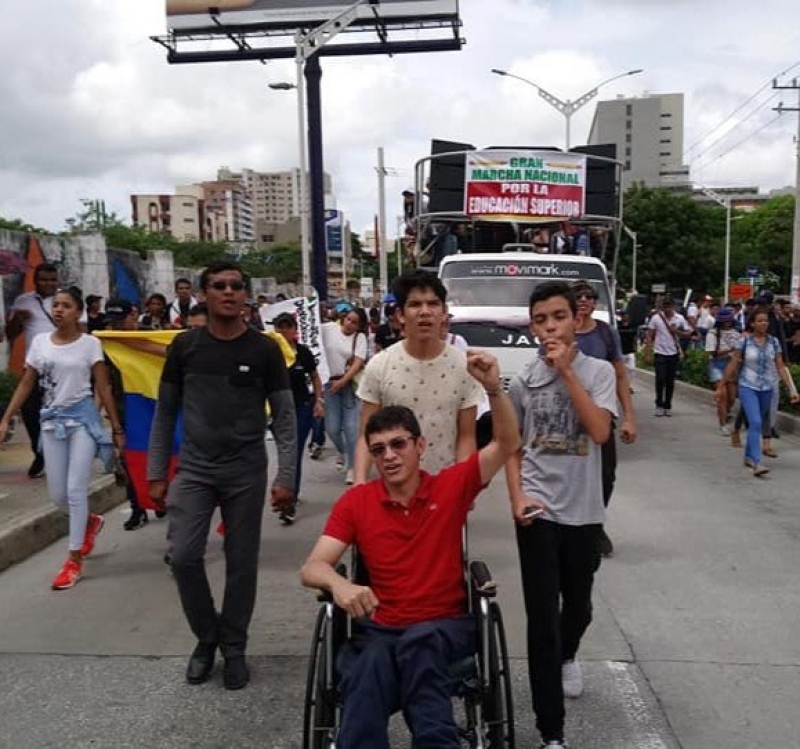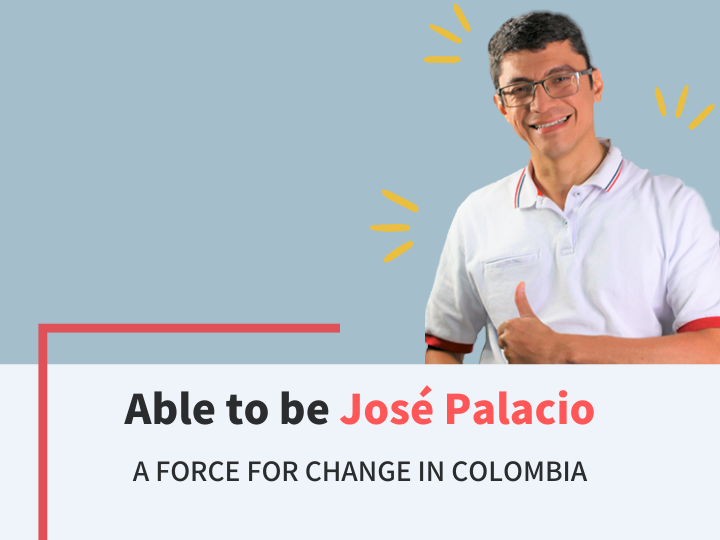The force awakens
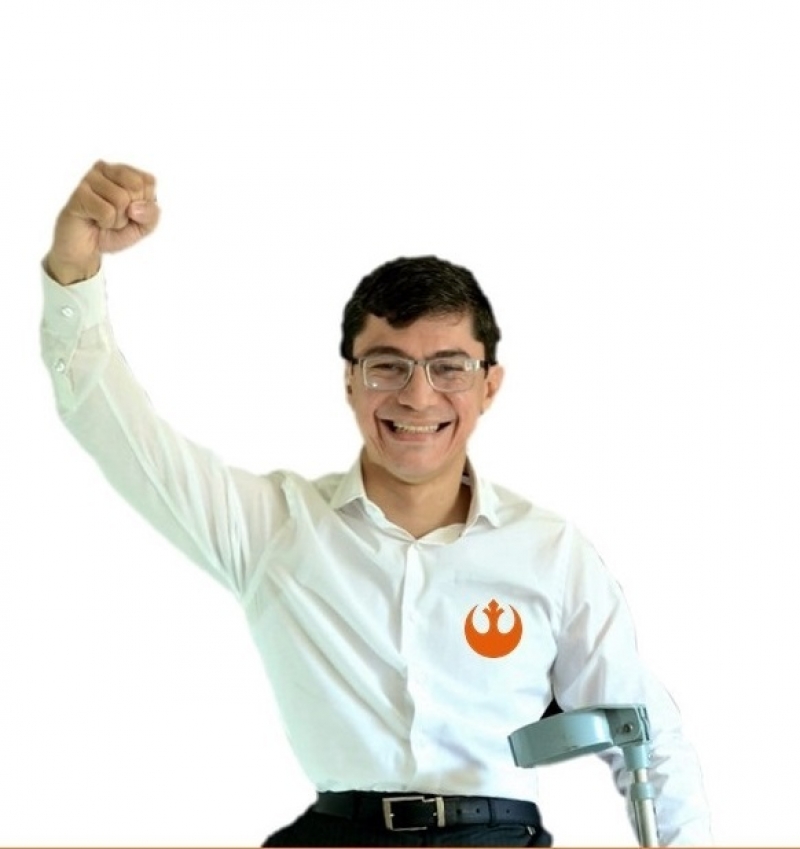
I am a big fan of Star Wars, because it depicts a universe where every diverse individual can be accepted.
My name is José and I’m from Barranquilla, a port city in northern Colombia. Just as I was taking my first steps as a baby, I contracted polio. My mother told me the emergency room was full of poliomyelitis cases, and that the doctors thought that I wouldn’t survive. I made it, but my left leg was paralysed.
Being listened to makes people feel better. José Palacio
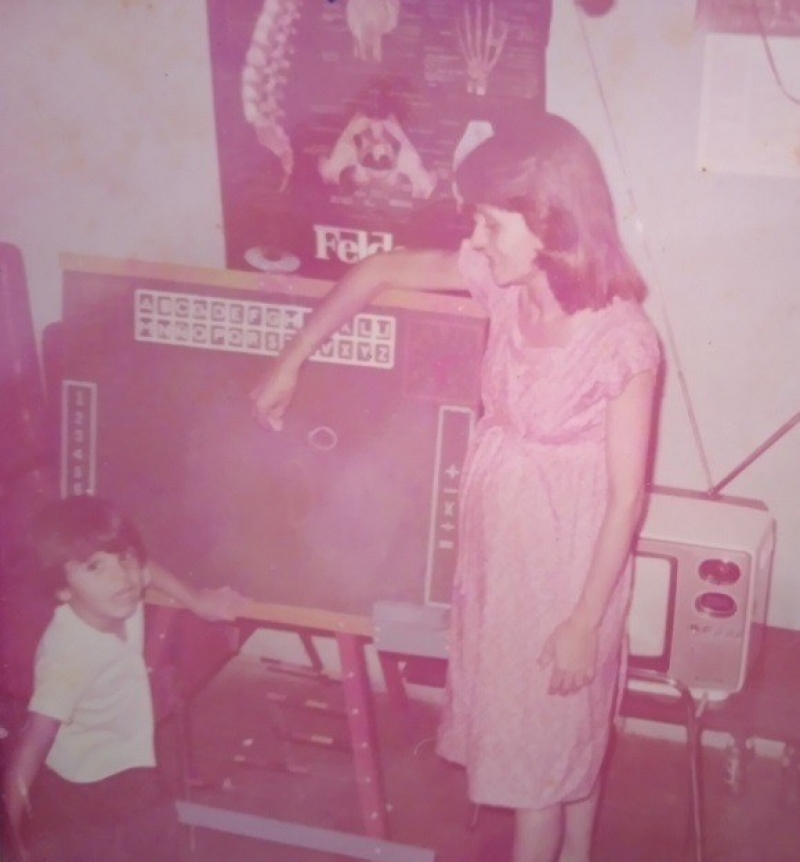
Since I was a child, I’ve had to face discrimination from my people
around me for being in a situation of disability, which I prefer to
think of as ‘functional diversity’. In medical school, some teachers
even disapproved of me becoming a doctor. They said I wouldn’t be able
to do the job properly. But I overcame all these barriers. I majored in
medicine, and now I am a surgeon.
I like to listen to my patients’ life stories. Sometimes they seek more than just physical treatment − they need someone to listen to them. Being listened to makes people feel better.
A new plan for freedom
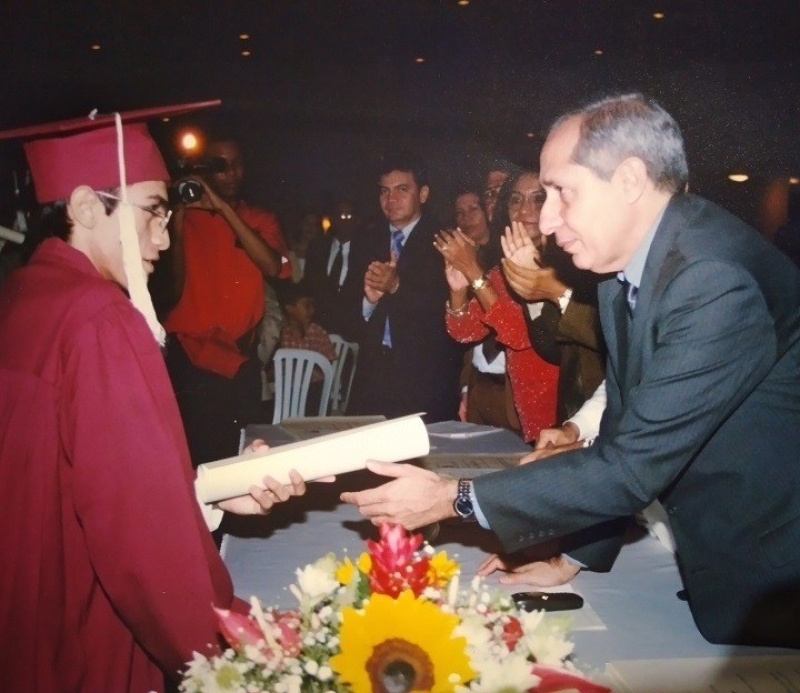
Today I walk with the help of a brace and a cane, but I prefer to use a wheelchair for longer distances. This can be a challenge because the city of Barranquilla is not very accessible.
We still have many architectural barriers in Colombia. Public spaces lack ramps; we don’t have audible traffic lights or tactile paving. We face communication barriers too, such as lack of braille books and sign language interpreters in schools. Attitudes can also be an obstacle– for example, people disregarding reserved parking spaces or teachers refusing to teach children with functional diversity.
I am committed to the social transformation of my country. José Palacio
We have made some progress in changing laws and regulations, creating financial support programs and more inclusive education. But oppression is still a huge problem in our society.
I am committed to the social transformation of my country. So I’ve written a book which proposes a new model for liberating people through better access and more personal autonomy. I call this model ISAIAS, and the overall goal is social inclusion through equal opportunities and free and dignified cultural, political and economic participation.
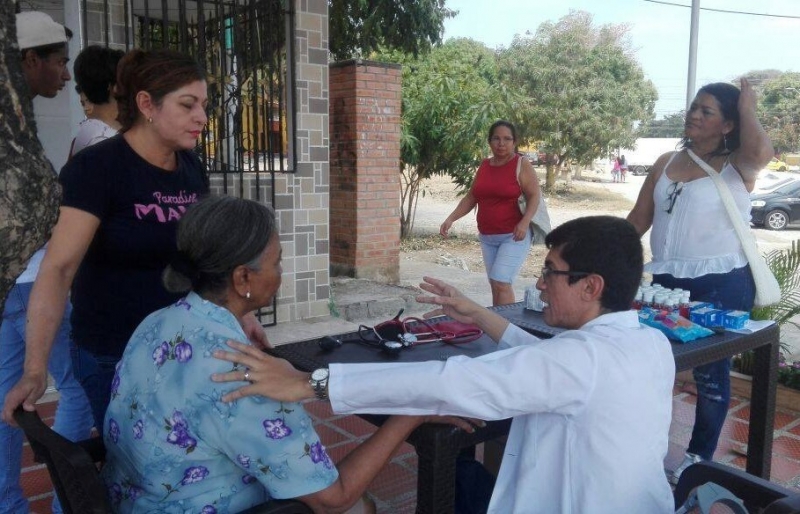
The biggest difference I have made for myself is accepting my situation of disability. José Palacio
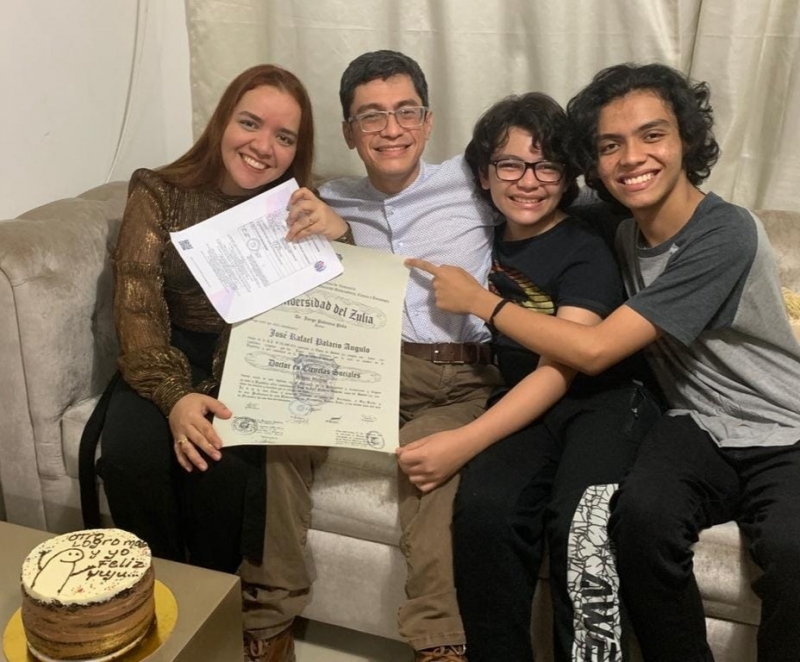
Becoming Professor Xavier
Knowledge makes me feel empowered, especially understanding the structural problems in our current reality. Having the love of my family and the firm support of my friends also makes me feel empowered. They are always there right beside me in the many projects I undertake.
The biggest difference I have made for myself is accepting my situation of disability. And understanding that we are all different, but no less equal in law.
This is why I now try to also make a difference in other people’s lives. I try to guide them in their liberation process, away from those old paradigms that see functional diversity as an evil that must be treated.
Sometimes I tell my friends that this is like what Professor Xavier does in X-Men. This is a movie about the struggle that exists in society, between excluding or including those who are considered different.
Just like in Star Wars, some organisations might want to take power by force, but there will always be resistance to fight for the freedom of all. And most importantly, no matter how strong an empire is, it will always be defeated by hope.
